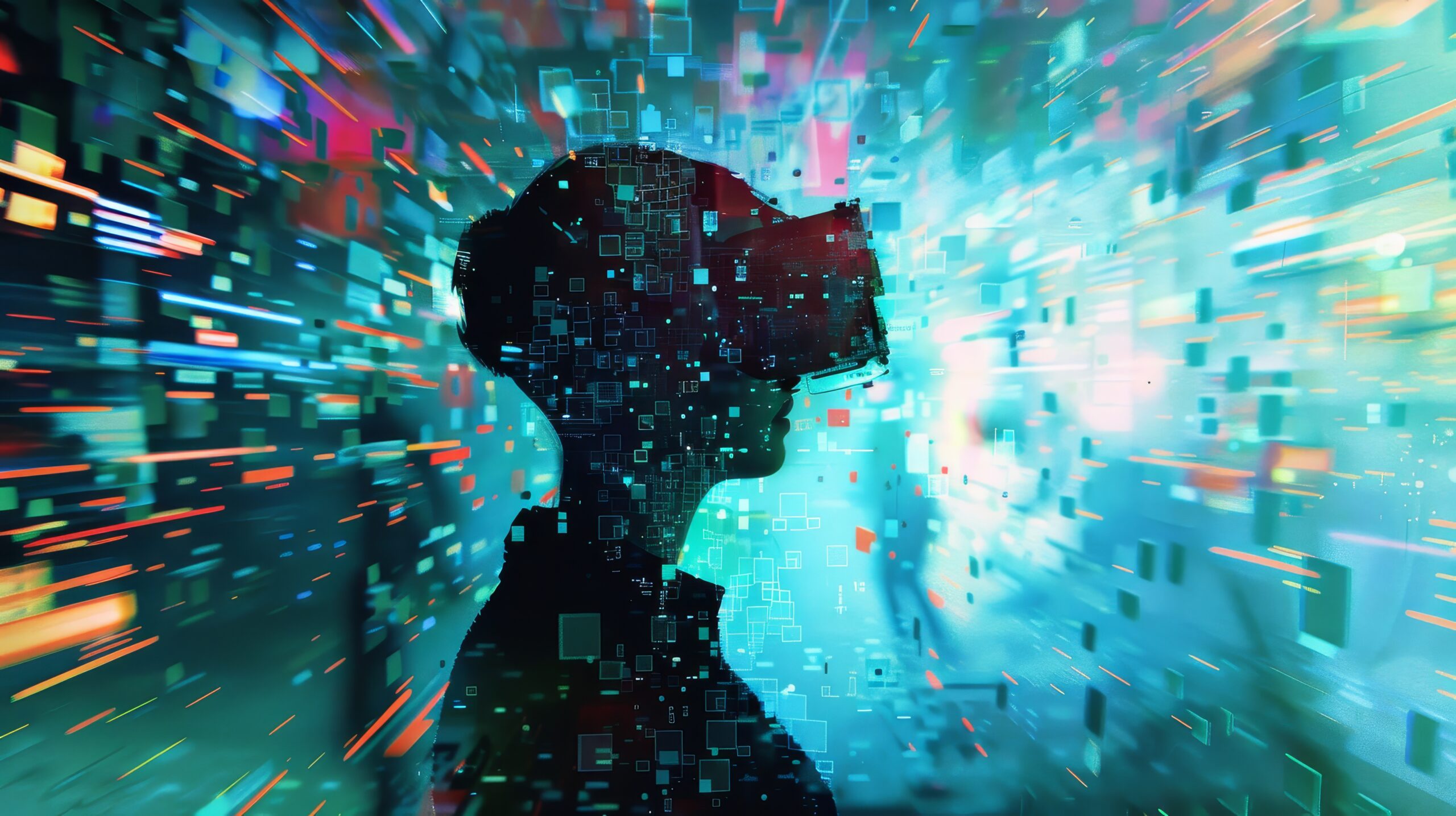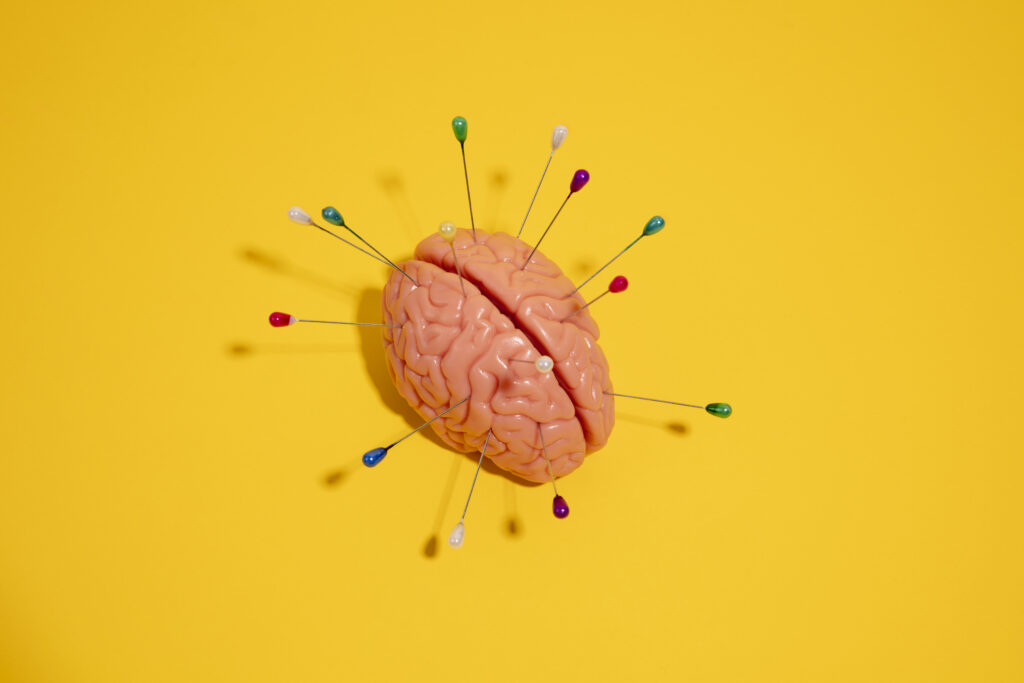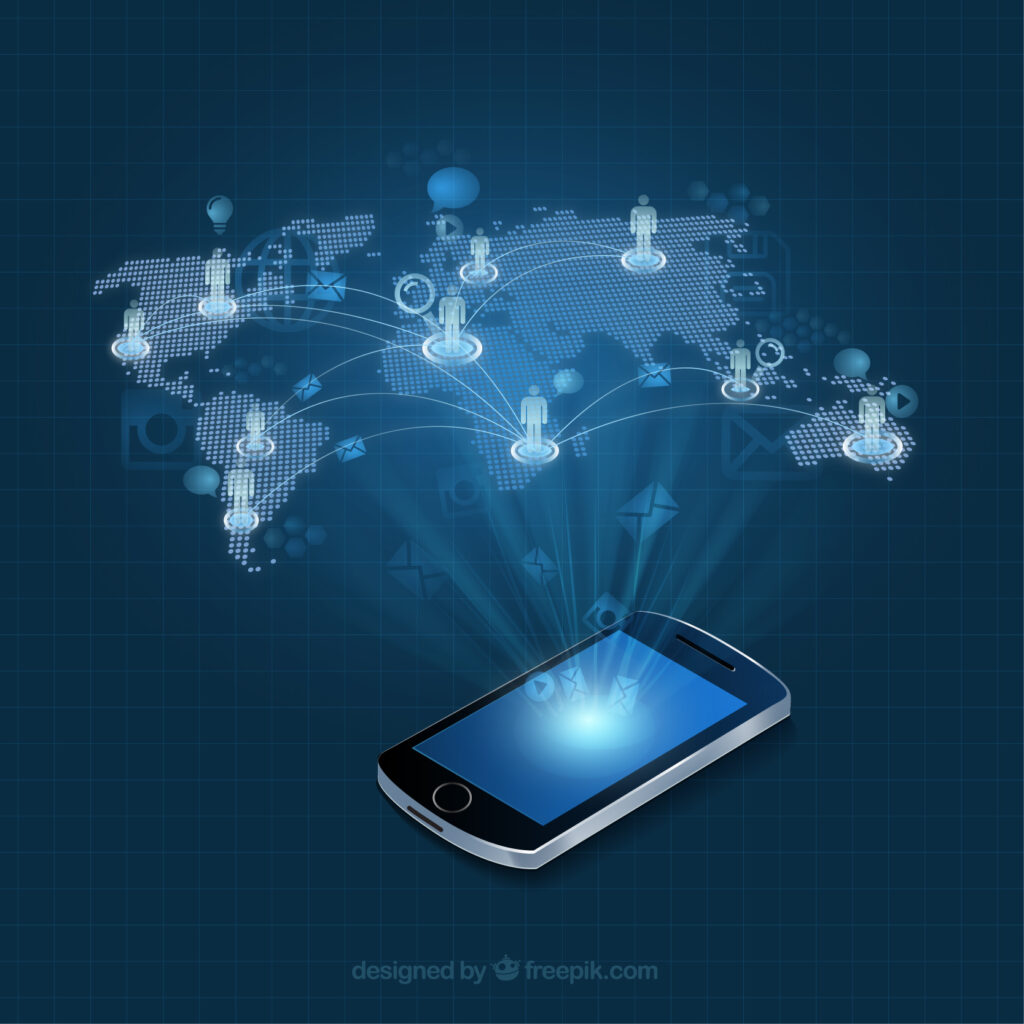
Can Generative AI help build a global hive mind? Imagine a world where collective intelligence transcends individual limitations, fostering innovation and problem-solving on a massive scale. Through the lens of historical advancements in technology, from the invention of the printing press to the rise of the internet, we witness the power of connectivity in shaping human progress. In this digital age, Generative AI stands at the forefront, offering the potential to amplify collaboration and knowledge-sharing like never before. Join us as we explore the transformative possibilities of harnessing Generative AI to cultivate a unified global consciousness.
Table of Contents
Understanding Generative AI
Basics of Generative AI
Generative AI refers to a type of technology that enables machines to create content autonomously. It uses complex algorithms to analyze vast datasets and generate new information. This technology has revolutionized various industries by enhancing creativity and efficiency in tasks.
One key aspect of generative AI is its ability to learn and improve over time. By analyzing patterns in data, it can generate realistic images, texts, and even music. This process is known as machine learning, where the system refines its output based on feedback received.
Generative AI operates on neural networks, which are modeled after the human brain’s structure. These networks consist of interconnected nodes that process information and make decisions. Through this intricate network, generative AI can produce highly detailed and realistic outputs.
AI in Global Connectivity
In today’s interconnected world, AI plays a crucial role in fostering global connectivity. Through advanced communication systems and data analysis, AI enables seamless interaction between individuals worldwide. This connectivity promotes information sharing and collaboration on a global scale.
AI technologies facilitate cross-cultural communication by providing real-time translation services. This capability breaks down language barriers and allows people from different parts of the world to communicate effectively. AI-powered platforms enhance virtual interactions, enabling individuals to connect regardless of geographical distances.
The integration of AI in global connectivity has transformed industries such as e-commerce and social media. By leveraging AI algorithms, businesses can reach a broader audience and tailor their products or services to diverse markets. This level of connectivity fosters innovation and drives economic growth across the globe.
AI’s Role in Hive Mind

Generative AI’s impact extends to the concept of a hive mind, where individuals collectively contribute knowledge and insights. Through advanced algorithms, AI systems can analyze vast amounts of data contributed by users worldwide. This collective intelligence forms the basis of a global hive mind.
AI’s role in the hive mind involves synthesizing diverse perspectives and information to generate valuable insights. By processing massive datasets, AI can identify trends, patterns, and correlations that may not be apparent to individual users. This collective intelligence enhances decision-making processes and fosters innovation on a global scale.
The integration of generative AI in building a global hive mind has the potential to revolutionize how societies collaborate and solve complex problems. By leveraging the collective knowledge of individuals worldwide, AI can drive advancements in various fields, from healthcare to environmental sustainability. This collaborative approach harnesses the power of technology to address global challenges collectively.
Overcoming Human Limits with AI
Beyond Human Capacity
Artificial intelligence (AI) has the potential to enhance human insights by processing vast amounts of data at incredible speeds. This capability surpasses the limits of human cognition, enabling AI to identify patterns and trends that may elude human perception. Through artificial superintelligence, AI can analyze complex information and provide valuable insights that would otherwise be challenging for humans to uncover.
In various fields such as healthcare, finance, and technology, AI can process and analyze data at a scale and speed that exceed human capabilities. By leveraging openAI platforms, researchers and professionals can access advanced tools to enhance decision-making processes. These platforms enable the aggregation of vast amounts of data, leading to more accurate predictions and insights.
AI’s ability to process and analyze data beyond human capacity is particularly evident in scenarios requiring real-time decision-making or handling massive datasets. For instance, in healthcare, AI algorithms can quickly analyze medical images and detect anomalies that might be missed by human radiologists. This not only improves diagnostic accuracy but also accelerates the treatment process for patients.
In the realm of scientific research, AI plays a crucial role in analyzing complex datasets from experiments or simulations. By identifying patterns and correlations within these datasets, AI can help researchers gain new insights and accelerate the pace of discovery. This highlights how AI’s computational power extends beyond what human researchers can achieve on their own.
AI as a Solution
The integration of AI into various industries presents a solution to overcome human limitations in processing and analyzing vast amounts of data. Through machine learning algorithms, AI systems can continuously learn from new information, improving their performance over time. This adaptive nature allows AI to evolve and provide increasingly accurate insights.
Moreover, AI-driven solutions offer scalability, allowing organizations to handle growing volumes of data efficiently. By automating repetitive tasks and streamlining processes, AI frees up human resources to focus on more strategic and creative endeavors. This shift enhances productivity and innovation within businesses across different sectors.
In the context of building a global hive mind, AI serves as a unifying force that connects diverse perspectives and knowledge. By aggregating insights from individuals worldwide, AI can synthesize collective intelligence to address complex challenges effectively. This collaborative approach harnesses the collective wisdom of humanity, transcending individual limitations.
Ultimately, the synergy between human creativity and AI’s analytical prowess paves the way for a more interconnected and intelligent society. As AI continues to advance, its role in augmenting human capabilities and fostering a global hive mind becomes increasingly prominent. Embracing this symbiotic relationship holds the key to unlocking unprecedented levels of innovation and progress.
Amplifying Group Intelligence

AI and Group Dynamics
Group intelligence can be significantly enhanced through the integration of AI into collaborative settings. By leveraging collective intelligence, teams can tap into a diverse range of perspectives and ideas. This synergy between intelligent individuals and AI algorithms leads to more innovative solutions.
In the context of small groups, AI can facilitate smoother decision-making processes by providing data-driven insights. For instance, in a team of researchers working on a project, AI algorithms can analyze vast amounts of information quickly, enabling the group to make informed choices efficiently.
Moreover, swarm intelligence, a concept inspired by natural systems like ant colonies, can be mirrored in human groups using AI. By distributing tasks among subgroups and coordinating their efforts through AI-powered tools, teams can achieve complex goals with greater speed and accuracy.
Impact on Collaboration
Integrating AI into collaborative environments can lead to a more cohesive and productive teamwork experience. With AI assisting in task allocation based on individual strengths and weaknesses, teams can optimize their workflow for maximum efficiency.
Furthermore, by analyzing communication patterns within groups, AI algorithms can identify potential bottlenecks or conflicts before they escalate. This proactive approach to conflict resolution enhances overall team dynamics and fosters a more harmonious working environment.
In essence, the use of AI in group settings transcends traditional boundaries, enabling teams to operate at higher intelligence levels collectively. By harnessing the power of collective superintelligence, organizations can unlock unprecedented potential for innovation and problem-solving.
Exploring Hive Mind Potential
Hive Mind Concepts
Hive mind refers to a collective consciousness where individuals think and act as a unified entity. In this concept, globalhivemind envisions a worldwide network of interconnected minds sharing knowledge and insights. These conversational swarms generate ideas through collaborative discussions.
By fostering collaboration and shared decision-making, hive minds leverage diverse perspectives for problem-solving. They enable rapid information dissemination and collective learning. In schools, students can benefit from hive mind principles by engaging in group projects and discussions.
In hive mind settings, individuals contribute unique insights that collectively enhance the group’s intelligence. This collaborative approach promotes creativity and innovation by combining different viewpoints. However, challenges may arise in maintaining consensus and managing conflicting opinions within the hive mind.
AI’s Contribution
Artificial Intelligence (AI) plays a pivotal role in advancing the globalhivemind concept by facilitating communication and information exchange on a large scale. Through algorithms and data analysis, AI enhances decision-making processes within conversational swarms. AI algorithms can process vast amounts of data to extract valuable insights for the hive mind.
AI technologies enable real-time interactions and feedback loops, allowing hive minds to adapt quickly to changing circumstances. By automating repetitive tasks, AI frees up time for individuals to focus on complex problem-solving and strategic thinking. In schools, AI tools can support personalized learning experiences tailored to students’ needs.
AI augments the capabilities of globalhivemind by providing predictive analytics and trend analysis based on vast datasets. These insights empower hive minds to make informed decisions and anticipate future trends. However, ethical considerations such as data privacy and algorithm biases must be addressed to ensure the responsible use of AI in hive mind contexts.
Challenges in Hive Mind Development
Technical Barriers
Artificial intelligence has made significant strides in recent years, yet developing swarms of AI systems to create a global hive mind presents unique challenges. One major technical barrier is ensuring seamless communication between individual AI agents. This requires complex algorithms to coordinate actions and share information effectively.
Furthermore, integrating diverse AI models into a cohesive hive mind poses another challenge. Each AI system may have different architectures and capabilities, requiring standardization protocols for compatibility. scalability issues arise when expanding the hive mind to encompass a large number of agents, necessitating robust infrastructure to support this growth.
To address these technical barriers, researchers are exploring innovative solutions such as federated learning, where AI agents collaborate while preserving data privacy. By utilizing decentralized architectures and secure communication protocols, these approaches aim to overcome technical hurdles and foster the development of a functional global hive mind.
Ethical Concerns
As we delve into the realm of building a global hive mind through swarms of AI systems, ethical considerations come to the forefront. One pressing concern is ensuring transparency in how decisions are made within the hive mind. Without clear visibility into the decision-making processes, there’s a risk of bias or manipulation influencing outcomes.
Moreover, privacy issues emerge when multiple AI agents interact within a hive mind. Protecting sensitive data and upholding user confidentiality become paramount to prevent breaches or misuse. Striking a balance between data sharing for collaboration and data protection for individuals’ rights is essential in navigating these ethical dilemmas.
To address these ethical concerns, frameworks emphasizing accountability and fairness in AI decision-making are being developed. Implementing ethical guidelines and governance structures can help mitigate risks and ensure that the global hive mind operates ethically and respects individuals’ rights.
Limitations of AI Usage
Understanding Limits
AI technology, while advanced, has its limitations. One major constraint is the inability to truly comprehend human emotions and intentions. This deficiency hinders the development of a genuine global hive mind. Another critical aspect is the lack of creativity in AI algorithms, restricting their ability to contribute diverse perspectives essential for a hive mind.
Moreover, AI’s reliance on data poses a significant limitation. Without vast datasets, AI struggles to make accurate predictions or decisions. This reliance raises concerns about privacy and data security, crucial aspects in building a trustworthy hive mind. Furthermore, the bias inherent in AI systems can perpetuate societal inequalities, hindering the inclusivity and fairness of a global hive mind.
the issue of ethical considerations cannot be overlooked. AI lacks moral reasoning abilities, leading to potential ethical dilemmas in decision-making processes within a hive mind. These ethical gaps could result in unintended consequences and conflicts that may undermine the collaborative nature of a hive mind.
Addressing Concerns
To mitigate these limitations and concerns, researchers and developers are exploring innovative solutions. One approach involves integrating emotional intelligence into AI systems to enhance their understanding of human emotions and intentions. By incorporating emotional cues, AI can better empathize with users, fostering more meaningful interactions within a hive mind.
Furthermore, efforts are underway to enhance the creativity of AI algorithms through generative models like GPT-3. These models can generate human-like text, enabling them to contribute diverse ideas and perspectives to a hive mind. This advancement holds promise for fostering creativity and innovation within collaborative networks.
Moreover, addressing data reliance issues entails implementing robust data governance frameworks to ensure data privacy and security. By prioritizing user consent and data protection measures, developers can build trust among hive mind participants. This trust is essential for creating a safe and inclusive environment where individuals feel comfortable sharing information and collaborating with others.
Solutions for AI Challenges
Innovative Approaches
Artificial Intelligence (AI) has made significant strides in recent years, with Mistral AI emerging as a prominent player in the field. Its cutting-edge technologies have revolutionized various industries, showcasing the potential of AI to enhance efficiency and productivity. One innovative approach involves leveraging flagship AI events to foster collaboration and knowledge-sharing among experts in the AI community.
Implementing AI solutions requires a deep understanding of complex algorithms and data processing. Mistral AI’s advancements have streamlined this process, enabling businesses to harness the power of AI more effectively. By participating in flagship AI events, professionals can stay abreast of the latest developments and best practices in the industry, gaining valuable insights that can drive innovation within their organizations.
Moreover, Mistral AI’s commitment to research and development has led to breakthroughs in natural language processing, computer vision, and other key AI domains. These innovative approaches have paved the way for more sophisticated AI applications, empowering businesses to automate tasks, analyze data more efficiently, and make informed decisions based on real-time insights.
In summary, embracing innovative approaches championed by companies like Mistral AI and engaging with flagship AI events can propel organizations towards AI success. By staying at the forefront of technological advancements and ethical considerations, businesses can leverage AI to build a global hive mind that fosters collaboration and drives positive change across industries.
Ethical Guidelines
As AI continues to evolve and permeate various aspects of society, it is crucial to establish robust ethical guidelines to govern its usage. Companies like Mistral AI are at the forefront of promoting ethical practices within the AI landscape, emphasizing transparency, accountability, and fairness in algorithmic decision-making processes.
Ethical considerations play a pivotal role in shaping the future of AI, ensuring that technology is developed and deployed responsibly. Mistral AI’s adherence to ethical guidelines not only safeguards user privacy and data security but also promotes inclusivity and diversity in AI applications. By prioritizing ethical principles, organizations can build trust with stakeholders and mitigate potential risks associated with AI deployment.
Furthermore, engaging with flagship AI events provides a platform for discussing ethical dilemmas and regulatory frameworks that govern AI usage. These forums enable industry experts to collaborate on developing standardized guidelines that promote ethical behavior and uphold societal values. By fostering open dialogue and knowledge exchange, organizations can navigate the ethical complexities of AI implementation more effectively.
Enhancing Group Intelligence with AI
Tools for Improvement
Superintelligent systems are at the forefront of enhancing group intelligence through advanced algorithms and machine learning techniques. These systems can process vast amounts of data to provide valuable insights and solutions. Conversational swarm intelligence is another tool that leverages AI to facilitate group discussions and decision-making processes. By enabling real-time interactions and feedback, conversational swarm intelligence fosters collaboration and innovation.
natural swarm intelligence draws inspiration from collective behaviors in nature, such as ant colonies or bird flocks, to optimize group dynamics and problem-solving. This approach mimics the decentralized structure found in natural systems, allowing for efficient information sharing and decision-making within a group. Combining these tools with AI technologies can significantly improve group intelligence by harnessing the power of diverse perspectives and expertise.
Moreover, the concept of extreme intelligence explores the potential for AI to surpass human cognitive abilities, leading to unprecedented advancements in problem-solving and creativity. By integrating extreme intelligence into group settings, organizations can tap into a wealth of knowledge and innovative ideas that would be unattainable through traditional methods. These tools not only enhance group intelligence but also pave the way for a more interconnected and collaborative global hive mind.
Case Studies
- AlphaGo: Developed by DeepMind, AlphaGo is an AI system that made headlines by defeating world champion Go players. By analyzing millions of moves and strategies, AlphaGo demonstrated the power of AI in mastering complex games requiring strategic thinking and intuition. This case study showcases how AI can enhance group intelligence by providing valuable insights and strategies for decision-making.
- Watson: IBM’s Watson is another prominent example of AI transforming group intelligence. From healthcare to finance, Watson’s cognitive computing capabilities have revolutionized industries by processing vast amounts of data to extract meaningful patterns and insights. By augmenting human expertise with AI-driven analysis, Watson enables teams to make informed decisions quickly and efficiently.
- OpenAI’s GPT-3: OpenAI’s GPT-3 represents a breakthrough in natural language processing, enabling users to generate human-like text based on minimal prompts. This transformative technology has wide-ranging applications, from content creation to customer service chatbots. By leveraging GPT-3’s capabilities, organizations can streamline communication processes and enhance collaboration among team members.
AI’s Role in Developing a Hive Mind
Facilitating Connectivity
AI plays a crucial role in facilitating connectivity among individuals across the globe. By leveraging advanced algorithms and data processing capabilities, AI technologies enable seamless communication and information sharing. Through social media platforms and messaging apps, people can connect instantly, fostering a sense of unity and collaboration.
Moreover, AI-driven tools such as recommendation systems and personalized content filters enhance online interactions by connecting like-minded individuals based on their interests and preferences. These technologies create virtual communities where individuals can share knowledge, ideas, and experiences, leading to the formation of a collective intelligence that transcends geographical boundaries.
AI-powered translation services break down language barriers, allowing people from diverse linguistic backgrounds to communicate effectively. This enhances cross-cultural exchanges and promotes understanding among individuals with different perspectives and experiences. As a result, the global community becomes more interconnected, laying the foundation for a unified hive mind driven by shared goals and aspirations.
Fostering Collaboration
Through collaborative platforms and project management tools powered by AI, individuals can work together efficiently regardless of their physical locations. Virtual workspaces equipped with AI features streamline task assignment, progress tracking, and communication, fostering a culture of collaboration and teamwork among remote teams.
Furthermore, AI algorithms analyze vast amounts of data to identify patterns and trends that guide decision-making processes within collaborative environments. By providing insights and recommendations based on real-time data analysis, AI enhances the collective intelligence of groups, enabling them to make informed choices and achieve common objectives more effectively.
In educational settings, AI-powered learning platforms facilitate peer-to-peer collaboration by connecting students with similar learning goals. Through virtual study groups and interactive exercises, learners can engage with each other to exchange knowledge and support each other’s academic growth. This collaborative approach to learning nurtures a sense of community and shared achievement among students worldwide.
The Impact of Generative AI
On Collaboration
Generative AI plays a crucial role in fostering collaboration among individuals and entities. By enabling real-time communication and idea sharing, it enhances teamwork efficiency. Organizations can utilize generative AI technologies to streamline collaborative efforts across departments. This leads to quicker decision-making processes and innovative solutions.
Moreover, generative AI facilitates seamless collaboration on a global scale. It breaks down geographical barriers by providing tools for remote teamwork. With the leverage of gen AI, teams can work together regardless of their physical locations. This boosts productivity and creativity by bringing diverse perspectives and expertise into the collaborative process.
Generative AI technologies empower individuals to contribute their unique skills to group projects. By analyzing data and generating insights, they assist in problem-solving and decision-making tasks. This not only enhances the quality of collaborative work but also promotes knowledge sharing among team members.
On Connectivity
Generative AI technologies enhance connectivity by creating networks that facilitate information exchange. They enable seamless integration of data from various sources, leading to a comprehensive understanding of complex issues. By leveraging genai, organizations can establish interconnected systems that promote efficient communication and data sharing.
Furthermore, generative AI fosters connectivity by enabling smart devices to interact intelligently with each other. This results in the development of interconnected ecosystems where devices collaborate to optimize processes and improve user experiences. By harnessing the power of generative AI technology, businesses can create innovative solutions that enhance connectivity and drive technological advancements.
Moreover, generative AI technologies play a vital role in enhancing connectivity in the healthcare sector. They enable healthcare professionals to access and share critical patient information securely and efficiently. By leveraging gen AI, healthcare organizations can improve patient outcomes through enhanced communication and collaboration among care providers.
Implications for a Global Network

Future Prospects
The concept of a global brain powered by generative AI opens up exciting possibilities. Imagine a world where AI algorithms seamlessly collaborate, creating a collective intelligence that transcends individual capabilities. This interconnected network could revolutionize industries like healthcare, finance, and education, leading to groundbreaking discoveries and innovations.
In the realm of healthcare, a global hivemind could analyze vast amounts of medical data in real-time, accelerating research and improving patient outcomes. By leveraging the collective knowledge of AI systems worldwide, medical professionals could access personalized treatment plans tailored to each patient’s unique genetic makeup and medical history.
Moreover, in the field of education, a global brain could offer personalized learning experiences to students based on their individual learning styles and preferences. Through adaptive learning algorithms, students could receive instant feedback and guidance, fostering a more engaging and effective educational environment.
The integration of generative AI into financial systems could enhance risk management strategies and optimize investment decisions. By tapping into the collective intelligence of a global hivemind, financial institutions could predict market trends with greater accuracy, leading to more stable economies and increased prosperity worldwide.
Potential Challenges
However, the realization of a global hivemind also presents significant challenges. One major concern is the ethical implications surrounding data privacy and security. As AI systems exchange information across borders, ensuring the protection of sensitive data becomes paramount to prevent unauthorized access or misuse.
Another challenge lies in the potential for algorithmic biases to perpetuate within a global brain. Without proper oversight and regulation, AI systems may inadvertently reinforce existing social inequalities or propagate misinformation, leading to harmful consequences for society at large.
Furthermore, the development of a global hivemind raises questions about accountability and transparency. In the event of system errors or malfunctions, determining liability becomes complex when multiple AI entities are involved in decision-making processes. Establishing clear frameworks for governance and responsibility is essential to mitigate risks associated with a decentralized network of intelligent agents.
Summary
In exploring the potential of Generative AI to cultivate a global hive mind, you’ve delved into its capabilities in enhancing group intelligence, overcoming human limitations, and addressing challenges in development. By harnessing AI’s power to amplify collective knowledge and decision-making processes, there lies a transformative opportunity to foster a more interconnected and efficient global network. Despite the hurdles and limitations, solutions are within reach, paving the way for a future where AI plays a pivotal role in shaping a collaborative hive mind. The impact of Generative AI extends far beyond individual capacities, offering a glimpse into a world where shared intelligence propels us towards unprecedented innovation and understanding.
Embrace the possibilities that Generative AI presents in building a global hive mind. Dive deeper into the realm of collaborative intelligence, explore new horizons of interconnectedness, and be part of shaping a future where collective wisdom drives progress and innovation. Your journey towards unlocking the full potential of AI in fostering a global hive mind starts now.
Featured Image by freepik
